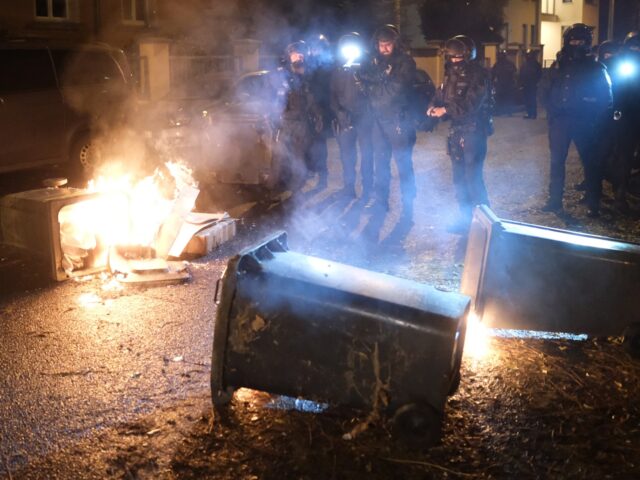Antifa activists brawled with police on Saturday during an attempt to disrupt a protest against the sanctions war with Russia.
Chaos hit the streets of the German city of Leipzig on Saturday after an attempt by Antifa to violently disrupt a march protesting the Western sanctions war with Russia, their impact on citizens, and the war in Ukraine more generally.
It comes as many in the country are struggling with the rocketing costs of food and fuel brought about by tensions between the West and Moscow, with Germany in particular having traditionally been heavily reliant on Russian gas exports and vulnerable to supply shocks.
With such gas supplies now running dry, many in the country now fear that they will not be able to adequately heat their homes in the coming months, with protests beginning to mount as a result.
One of these protests that took place on Saturday was met with heavy resistance however, with it being reported that mask-wearing Antifa activists disrupted one anti-war protest march in the German city of Leipzig on Saturday.
According to Bild, protesters blocked the planned marching route for the anti-sanctions demonstration using both human barricades and burning piles of bins and refuse.
Attempts by police to clear the blockages appear to have been met with violence, with video emerging online that seemingly shows riot police clashing with Black Bloc-style protesters.
Leftist agitators are also reported to have hurled fireworks in an apparent attempt to disrupt proceedings.
Titled ‘Ami Go Home’, many who participated in the anti-war protest appeared to accuse both Germany and the European Union of having abandoned national interests in favour of appeasing the likes of the United States and NATO.
While the truth of this accusation is by no means a settled matter, what is clear is that the German economy is suffering badly due to current tensions with Vladimir Putin’s government, with Moscow having largely cut Germany off from its supply of Russian gas.
For example, one German business and industry expert recently warned that while the country is now looking to reduce its gas consumption by 20 per cent or more, most companies will not be able to meet such targets without either reducing production or shutting down entirely.
To make matters worse, unless contingency plans more or less line up flawlessly over the coming weeks, Germany could run out of gas entirely by the end of February — an eventuality that could have devastating effects on the EU member-state’s economic and social stability.
Such a dire situation, while exacerbated by the current war in Ukraine earlier this year, can in large part be traced to the green agenda of Germany’s political class, as well as militant climate legislation at the level of the European Union, which have seen the country shut down nuclear power stations and abandon attempts to develop its own fossil fuel industry in the name of carbon emissions.
This attempt at a green transition created a massive reliance on foreign energy exports from Russia, and officials from abroad, most notably then-President Donald Trump, warned long before the Ukraine war that such an arrangement would end in disaster — though he was literally laughed off by German officials at the time.
German leaders are now mourning their own stupidity on the subject: “Energy policy is always power policy, is always interest policy, is therefore always security policy,” economy minister Robert Habeck remarked earlier this year.
“And if you look back, you almost can’t understand how we could be so blind to overlook that,” he added.

COMMENTS
Please let us know if you're having issues with commenting.